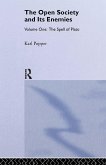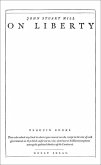This book relates Hegel to preceding and succeeding political philosophers. The Hegelian notion of the interdependence of political philosophy and its history is demonstrated by the links established between Hegel and his predecessors and successors. Hegel's political theory is illuminated by essays showing its critical assimilation of Plato and Hobbes, and by studies reviewing subsequent critiques of its standpoint by Stirner, Marx and Collingwood. The relevance of Hegel to contemporary political philosophy is highlighted in essays which compare Hegel to Lyotard and Rawls.
Hinweis: Dieser Artikel kann nur an eine deutsche Lieferadresse ausgeliefert werden.
Hinweis: Dieser Artikel kann nur an eine deutsche Lieferadresse ausgeliefert werden.
'In this impressive comparative study, Gary Browning sets Hegel's political philosophy against the tradition that preceded him (Plato, Hobbes) and the one he has helped to shape (Stirner, Marx, Collingwood, Lyotard and even as Browning argues, Rawls). In so doing, Browning helps us arrive at a balanced assessment of Hegel's achievement, his place in the history of political thought, and his own contribution as an historian of ideas. This collection of essays provides an excellent way in to Hegel's political philosophy for those who are familiar with other figures from the tradition, whilst forcing Hegel scholars to test his ideas against different but related outlooks, and to question for themselves what is distinctive and living in the Hegelian position. It is accessible, well-informed and well-judged.' - Robert Sterne, Department of Philosophy, University of Sheffield Author of Hegel, Kant and the Structure of the Object, editor of G.W.F Hegel: Critical Assessments and pasteditor of the Bulletin of the Hegel Society of Great Britain.
'Browning's excellent and informative collection of essays considers Hegel's thought.' - Ian Fraser, Political Studies
'Browning's excellent and informative collection of essays considers Hegel's thought.' - Ian Fraser, Political Studies








